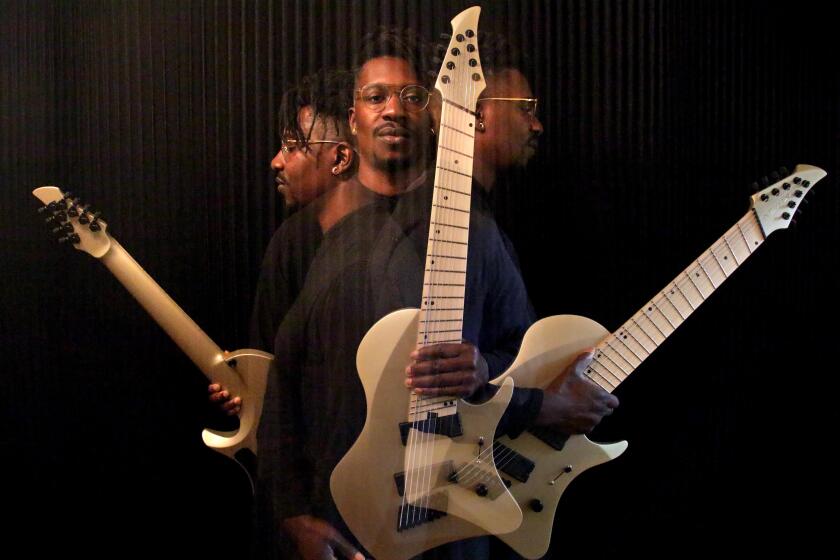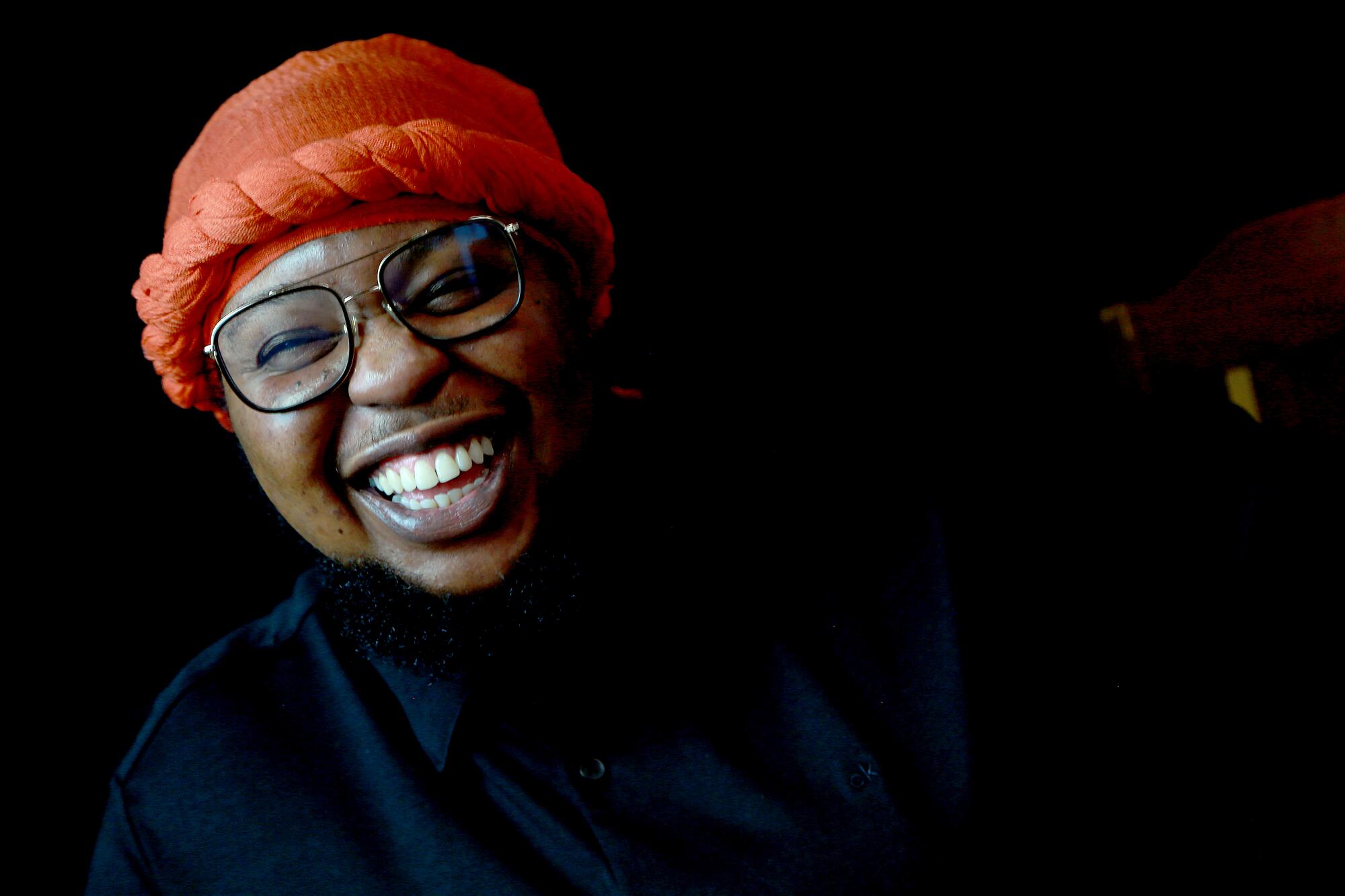
- Share via
BL Shirelle has been in prison twice since she was a teenager. The first time, at 18, she was incarcerated after a shootout with an undercover cop. She served six years at Pennsylvania’s Cambridge Springs correctional institution for aggravated assault.
“I was shot a few times, kicked around, ribs, jaws, all that stuff,” she recalls of the incident that landed her in prison. “When it’s life and death and you have to make that decision, it’s fight or flight. Some people fight, some people flight. Ninety-nine percent of us end up dead regardless.”
And any time a member of the Black community is murdered, she says she gets “survivor’s remorse.”
“For me to actually see people who die for selling cigarettes or allegedly trying to pass a fake $20 bill, it’s like, ‘Wow, why the hell am I still here? I literally shot back [at the officer].’”
Shirelle, 32, is now the deputy director of Die Jim Crow — the first nonprofit record label for formerly or currently incarcerated musicians in America. She is also its inaugural solo artist.
On June 19 — or Juneteenth, the commemoration of the end of slavery in the United States — Die Jim Crow released its first full-length album, Shirelle’s “Assata Troi.”
“This album really is about coming of age, but not of age 21, more like of age 28, where you’re just starting to realize certain things,” Shirelle says. “It’s all about that moment of growing up, where you’re looking at things from a different point of view.”
From a designer of far-out guitars to a club-music collective to a rapper-turned-vegan chef, here’s a guide to 27 diverse Black-owned music ventures
Die Jim Crow was founded in 2013 by Fury Young, an artist and activist. Young (née Yuvi Brozgold) grew up on the Lower East Side of New York with his therapist mother and social worker/artist father. Inspired by Occupy Wall Street and motivated after reading Michelle Alexander’s 2010 book “The New Jim Crow,” Young took to Kickstarter to raise funds for a one-off record featuring incarcerated artists, generating nearly $20,000.
“I was looking for a cause that really drew me in, and having known some people who’ve been incarcerated, when I read the book, it hit home for me,” he recalls.
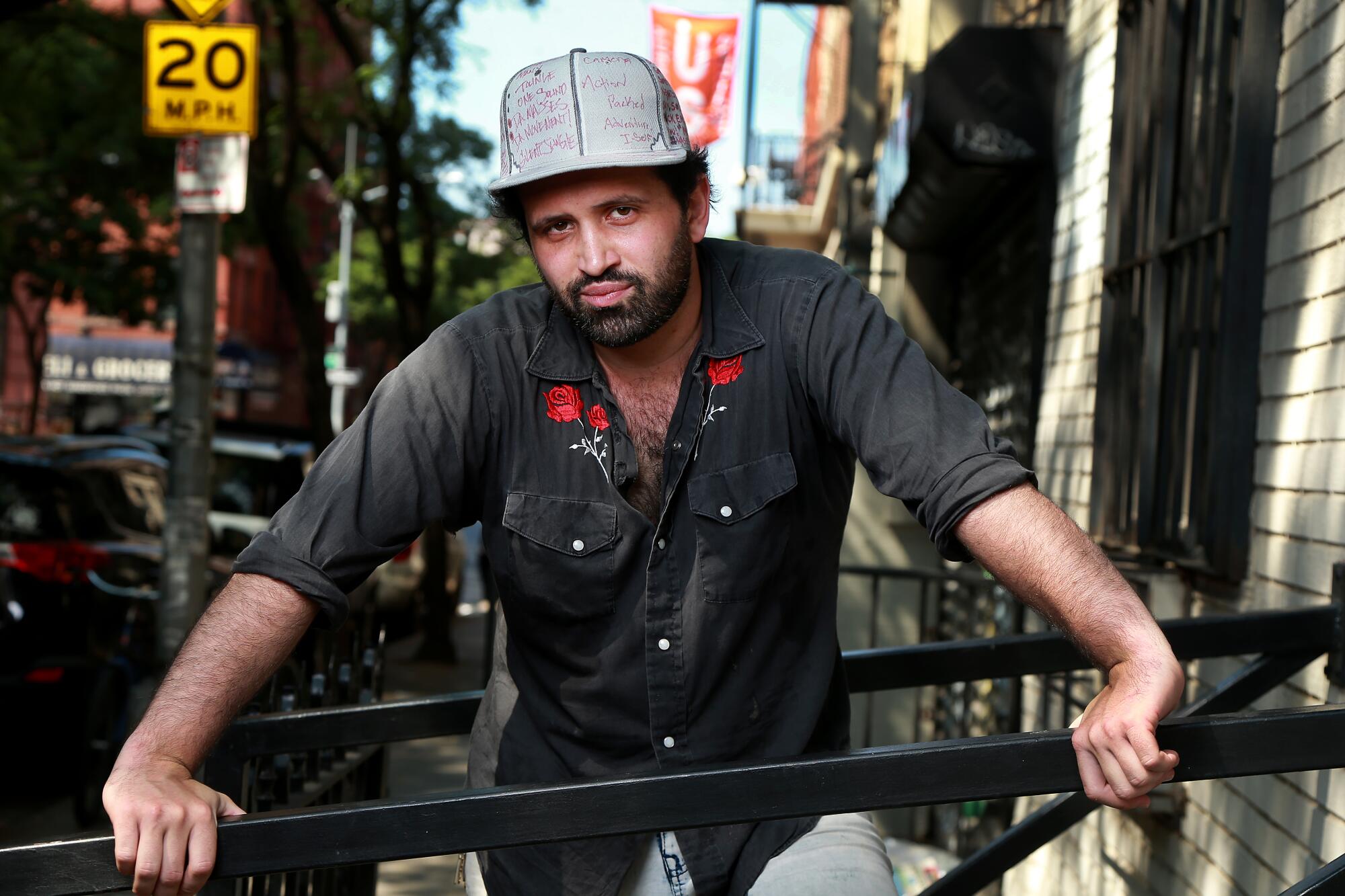
At the time, Young was a carpenter who built film sets. His earnings allowed him to take off weeks at a time to travel to prisons to record the artists who wound up on the 2016 digital release of a six-song EP, “Die Jim Crow.”
With the creation of a full-fledged label, Young and his team of eight staffers, all of whom work remotely, are trying to give a voice and a face to members of society who are often ignored.
“They are people who are formerly and currently incarcerated, and that’s a voice that’s not really heard from in the mainstream,” says Young, 31. “And to do it in the form of music that’s accessible and good quality, I think that will reach people on an artistic level and on an emotional societal level as well.”
More than 50 years since the end of Jim Crow, the state and local laws that legalized racial segregation, the Black community still faces widespread racial discrimination by the U.S. criminal justice system. At a time when the killings of George Floyd and Breonna Taylor have spurred protests and subsequent calls to defund the police around the country — as well as abolish prisons — Die Jim Crow is trying to call attention to a prison population that is often mistreated, exploited and rendered invisible.
Young and engineer (and sometimes co-producer) dr. Israel (born Douglas Bennett), 51, are working on three albums recorded in prisons, involving 19 artists. Since 2015, they have recorded more than 55 collaborators in five prisons. In March 2019, they traveled south to record Albert Woodfox, who spent 43 years in solitary confinement at Louisiana’s Angola Prison — longer than any prisoner in U.S. history — before his 2016 release, as well as four rappers at juvenile prisons in Mississippi and 22 artists in South Carolina. Faced with such an abundance of talent, Young decided to start a full-fledged record label.
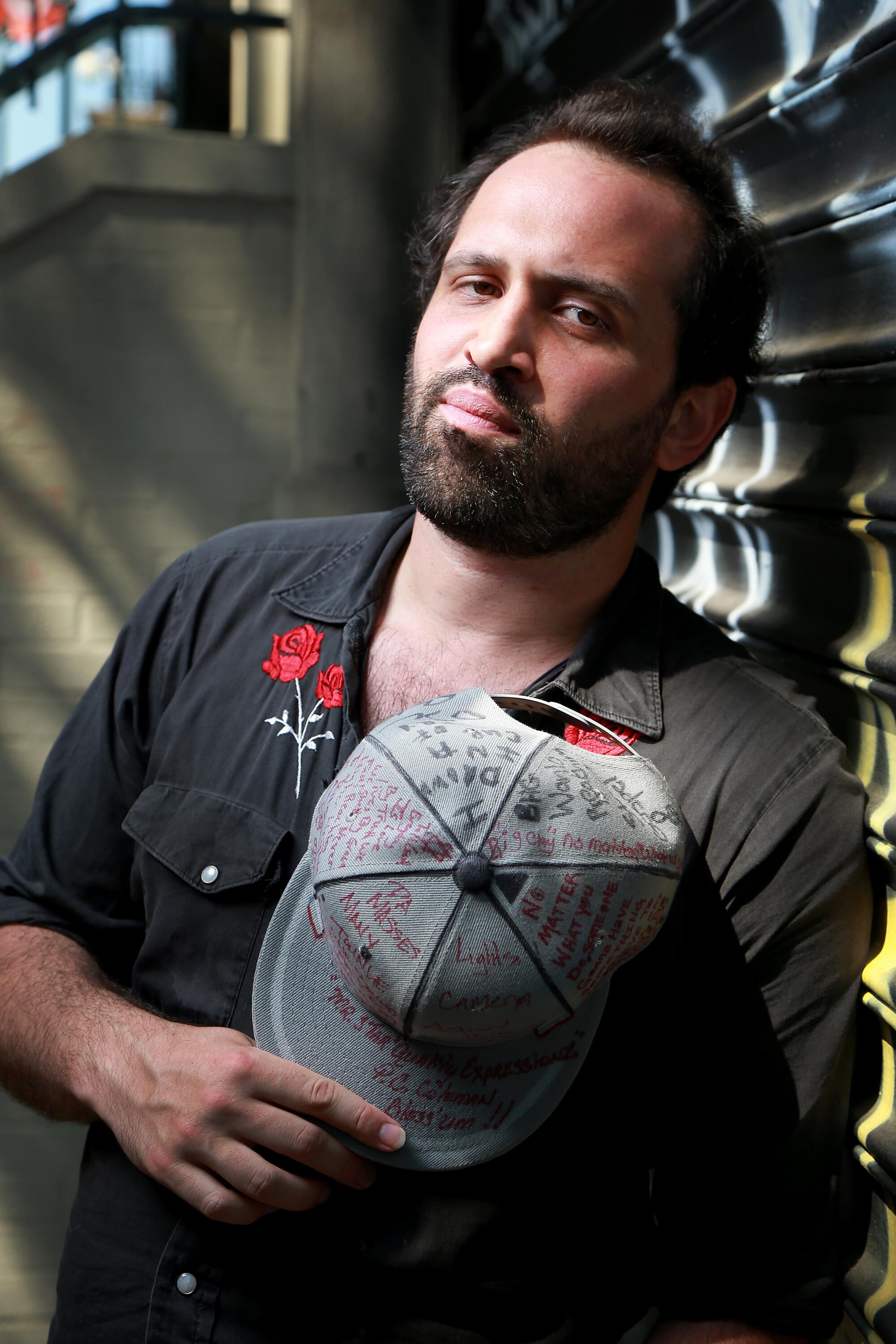
The team behind Die Jim Crow consists of formerly incarcerated individuals: Shirelle, who in addition to her time at Cambridge Springs also did a stint for drug possession; Andy Dixon, a producer and songwriter who served 27 years on a kidnap-for-ransom conviction in Tennessee; and Eric Borsuk, a writer and member of Die Jim Crow’s board of directors, who served five years in a penitentiary for planning a heist and stealing an original copy of Darwin’s “Origin of the Species” from his college library (his story has been documented in his 2018 memoir and film “American Animals”).
Dixon liked the idea that Die Jim Crow could help change society’s perspective on current or former inmates. “Contrary to a lot of people’s ideas, people in prison aren’t always just negative and violent,” Dixon says. “They want to find redemption. They want to find a way back home, back to the person they were before they committed the act that forever changed their lives.”
Young reached out to Shirelle after seeing a video of her 2014 TEDx talk and musical performance recorded while she was incarcerated in Muncy State Prison. “I wrote him quite a few songs and he happened to really like two, both of which ended up on the Die Jim Crow EP,” Shirelle says. “Then when I came home, we met up and recorded some more.”
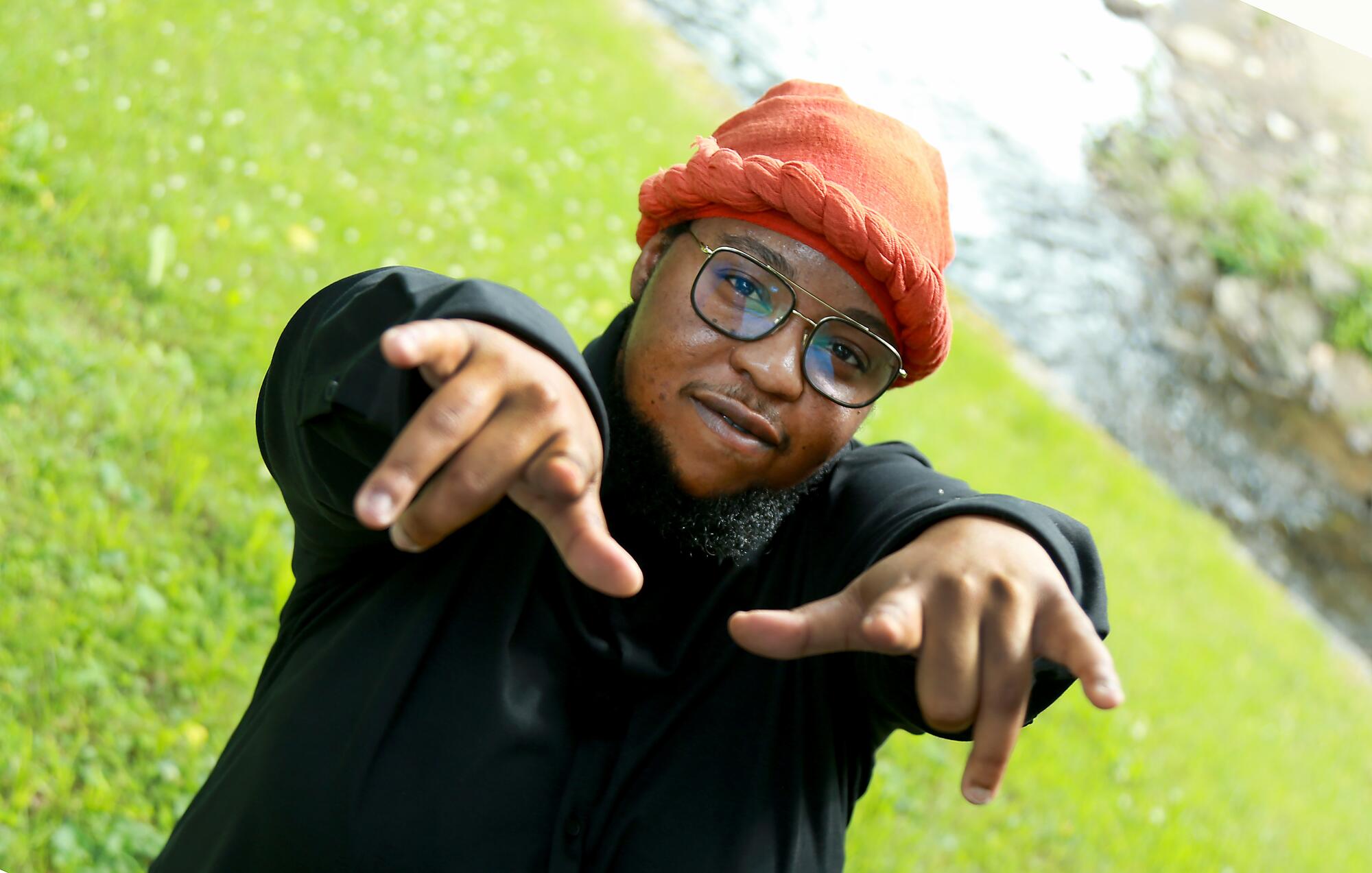
On her debut LP, Shirelle turns her trauma into power and draws from her experience as a Black lesbian who came of age during the crack epidemic. Rocker “Conspiracy” details how in Pennsylvania the charge of conspiracy is the same as committing a crime, while the raging “YAGAF (Ya Ain’t Give a ...)” reflects on her experience growing up with an addict mother, and on the disproportionate punishment for crack possession versus cocaine. “[Society] punished the Black community for the epidemic,” Shirelle says.
The recent police killings of Floyd and Taylor have weighed heavy on Shirelle. She and her wife, Latoya Ross, whom she met at SCI Cambridge Springs, have been protesting every day in her hometown of Philadelphia to demand justice. “[We] can’t have a real policy change in someone’s name if you didn’t even arrest the officers who murdered her,” Shirelle says of Taylor.
Though she’s been focused on the protests, Shirelle hasn’t forgotten about the COVID-19 pandemic. “It’s a top-two fear to get sick in prison because [there’s] a deliberate difference [in] our healthcare,” she says.
Fighting COVID-19 in prisons has become central to Die Jim Crow’s cause. The known infection rate for COVID-19 is about 2.5 times higher for prisoners, and more than 67,000 people in American prisons and jails have been infected.
Spoon Jackson, a poet who has collaborated with Ani DiFranco and contributed lyrical poems to Die Jim Crow, has been serving a life sentence without the possibility of parole “for murder with special circumstances” since 1978. As an inmate at Solano State Prison in California, Jackson fears what happens when the pandemic hits his 250-person dorm.
“It’s going to be catastrophic,” Jackson says. “I’m trying to practice social distance in a place where it’s almost impossible to do that, due to the overcrowding.”
Jackson was drawn to Die Jim Crow’s purpose. “I want to put a human face on people that should be considered human anyway,” he says. “Because we all walk with one foot in darkness and one foot in light.”
In April, Die Jim Crow created a GoFundMe to produce personal protective equipment (PPE) for inmates across the U.S., which has raised more than $15,000 and resulted in more than 11,000 pieces of PPE. And when Bandcamp waived 100% of its sales on June 5 to donate to organizations in support of racial justice, the label allocated its sales to the families of Taylor and Jamel Smith, a 35-year-old Black man who died in Metropolitan Detention Center after being maced by correctional officers in his cell.
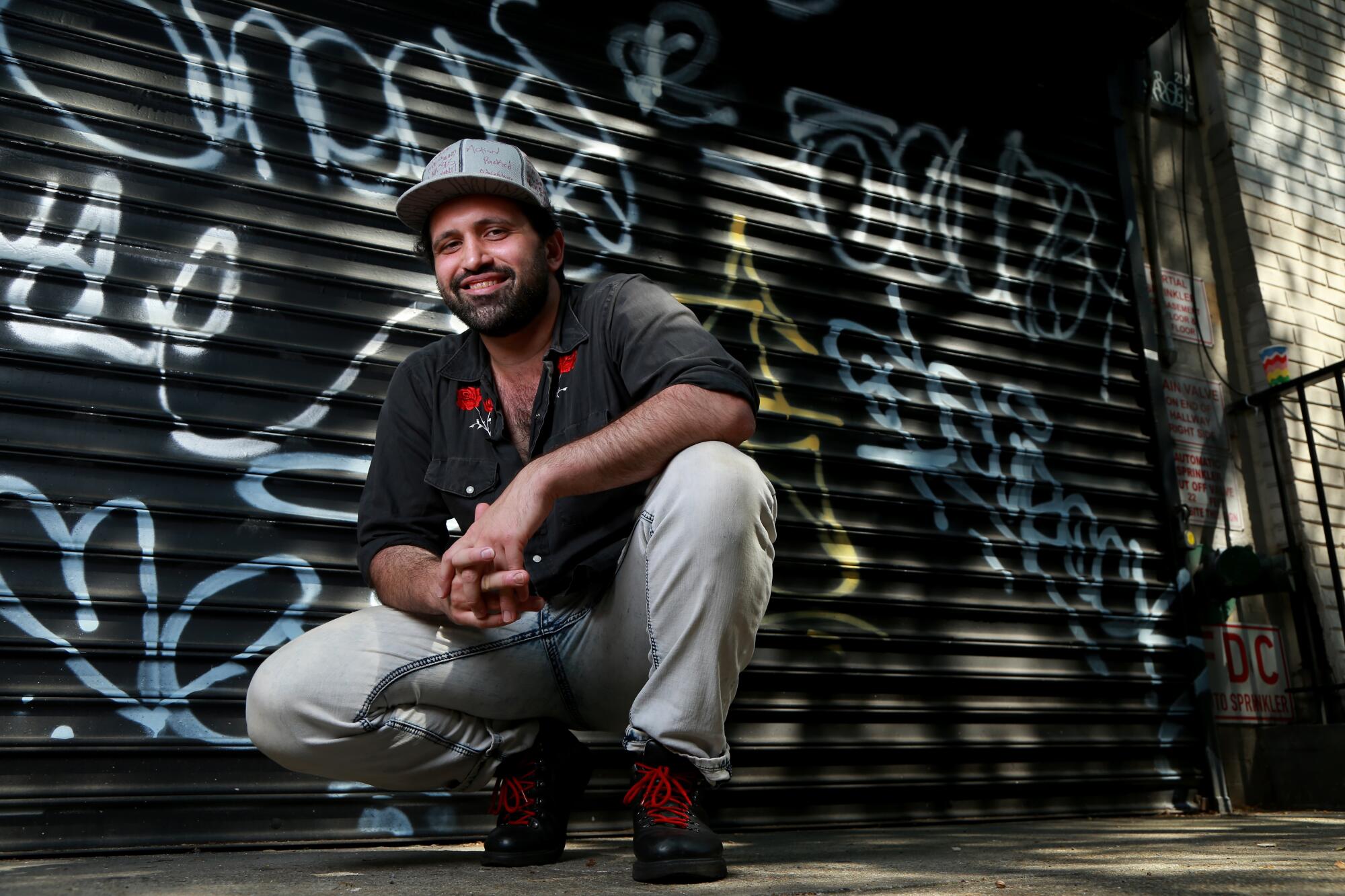
At a time when calls to defund the police and abolish the prison system have penetrated everyday conversation, Die Jim Crow’s launch seems particularly well timed. Perhaps surprisingly, though, neither Shirelle nor Young fully support the abolition of prison.
“There are people who belong in prison,” Shirelle says. “I do believe that prison has saved certain people’s lives. I do believe that sometimes people need a reset to be able to gauge the potential that they have.”
Young is hypothetically in favor of it — “Do I think prison abolition is a cool idea? Yeah, I do”— but worries about its practical application. “You just never know until you get the wheels on the ground. Are people ready for that?”
Following the release of Shirelle’s “Assata Troi” album, Die Jim Crow has a series of projects on deck from incarcerated and formerly incarcerated artists, including monthly singles. Later this year, the label will release an album called “Territorial” from seven artists currently serving time at the Colorado Territorial Correctional Facility, and in 2021, it will issue an LP from 10-member hip-hop collective the Masses, from Allendale Correctional Institution in South Carolina.
“[Society] might look at you and just see the crime you committed, but with Die Jim Crow, all they hear is good music,” Shirelle says. “We’re not doing it for charity, like, ‘Hey, you want to do a song?’ No, these artists are the s—. They inspire me.”
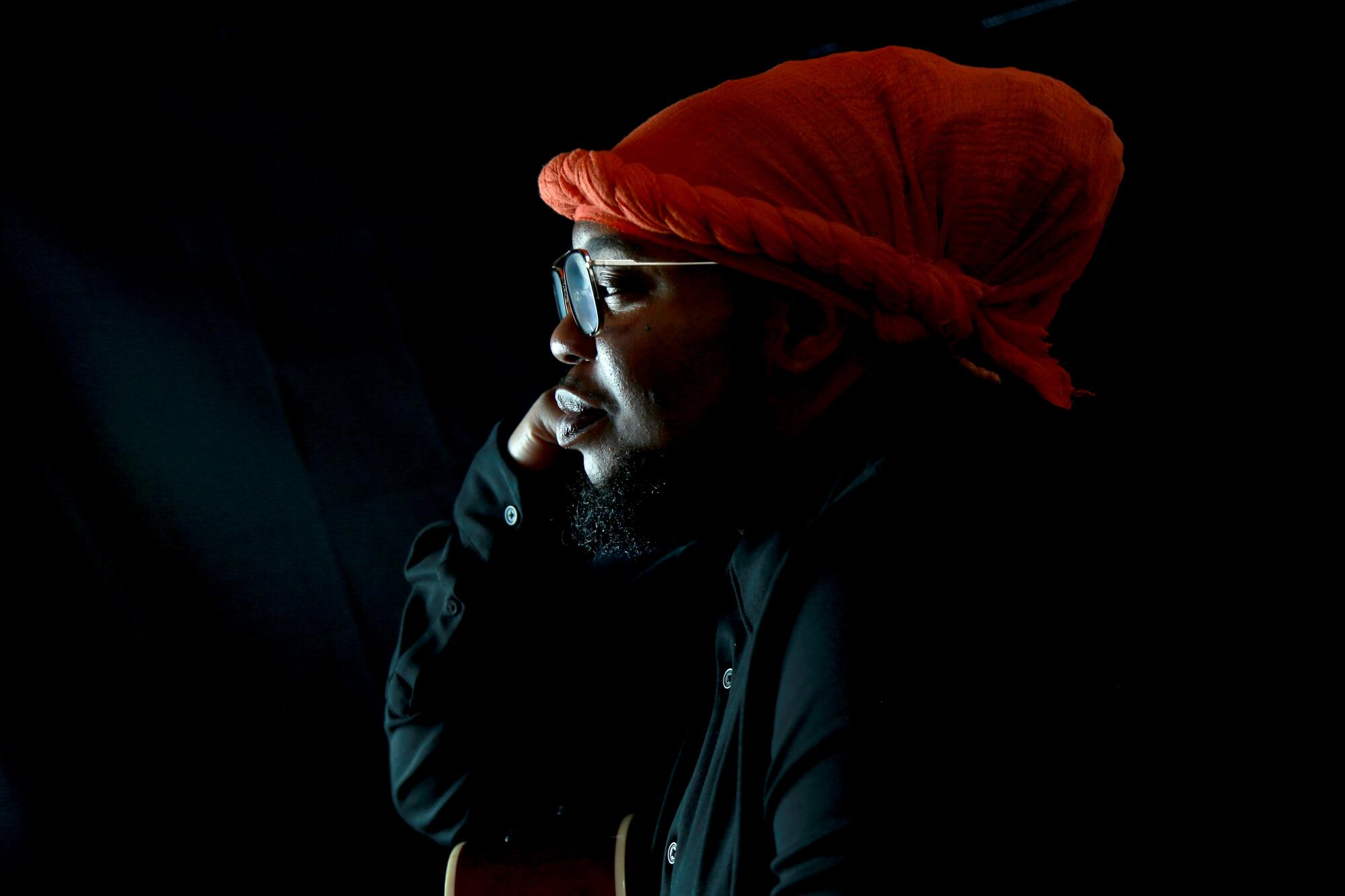
More to Read
The biggest entertainment stories
Get our big stories about Hollywood, film, television, music, arts, culture and more right in your inbox as soon as they publish.
You may occasionally receive promotional content from the Los Angeles Times.
